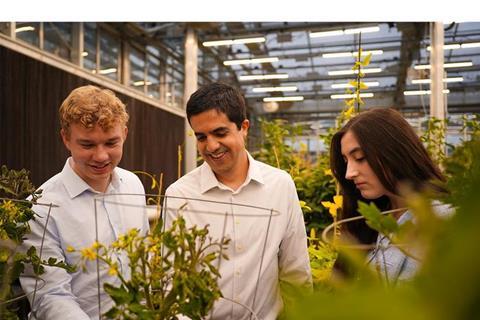AMF live underground in tight association with plant roots, where they help plants take up nutrients like phosphorus and nitrogen from the soil, and to tolerate environmental stress. In exchange, plants return essential carbon-containing compounds that allow the AMF to live and grow. About 70% of all plants naturally form symbiotic relationships with AMF, and AMF is recognized as a key organic component contributing to more sustainable and profitable agriculture practices. AMF sales worldwide have been projected to grow over the next 8 years at 10-15% annually (CAGR).
Cultivating fungi
“Although AMF’s benefits to plants have been known for decades, widespread agricultural adoption has remained limited due to inefficient production methods,” said Bravo. “Recent breakthroughs in AM symbiosis research could enhance our ability to cultivate AMF more effectively. These advances not only deepen our understanding of AMF’s functions but also offer practical applications for improved fungal production. Just like the symbiotic relationship between AMF and plants, this collaboration will benefit both Symbiotic Sciences and the Danforth Center by advancing basic science and sustainable agricultural practices.”
READ MORE: Inside look at how plants and mycorrhizal fungi cooperate
READ MORE: Under the microscope: the rhizosphere
“For the last 15 years we have been operating one of the largest AMF production facilities in the world,” said Chowdhury. “As we have developed our proprietary methods, we have come to appreciate the complexity of culturing AMF at scale. Since EN has begun selling a variety of AMF products to the market we have observed a rapid increase in demand. Supply of high quality AMF is limited, so methods to increase production efficiencies without compromising quality are clearly needed. We are truly excited to partner with Dr. Bravo and the Danforth Center, as we believe this collaboration will open up innovative pathways to enhance production efficiency and scalability. We hope to collaborate with Danforth on other projects to facilitate the adoption of AMF in agriculture.”








No comments yet